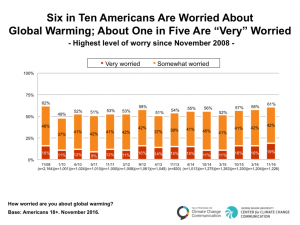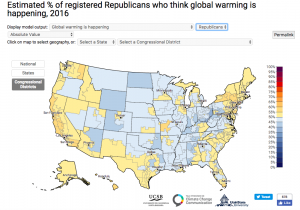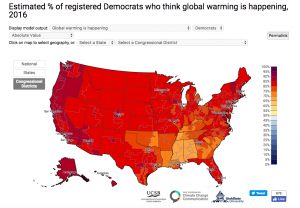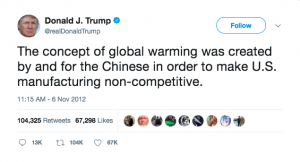Partisan Lenses: how significant is political affiliation in public opinion?
This week’s discussion centers around the idea of public opinion. As stated in the reading, the powerful “partisan lens” has increasingly had a drastic effect on the way in which people form their ideological and political opinions. Many people do not have the time to become informed on complicated political issues and therefore adopt the positions supported by those who are better informed and share their basic values and interests. The positive impact of these shortcuts is that it allows for many citizens to have a role in democracy. However, the negative impact is that sometimes people only consider partisanship allegiance, and therefore are blind to the reality of certain situations.
People have core beliefs as well as political attitudes that translate into overall public opinion. Political socialization is the process by which individuals acquire political beliefs and attitudes. There are several agents of socialization, such as families, schools, and major events or developments. Party identification is shaped by the process of socialization and is extremely powerful, as many people that are less informed look to their party affiliation for guidance when making decisions regarding complex issues in society and the government. As I stated before, while this guidance can be helpful in allowing those citizens to have an impact on democracy, it has divided us so much in our political views that issues such as race/ethnicity, social class, education, the environment, and gender have been blurred in regards to what is true and what is portrayed to be true by certain political party leaders.
More often than not, ordinary citizens are uniformed, prone to rapid and irrational changes in their political attitudes, and are easily led astray. These are the very reasons that Madison, Hamilton, and other framers of our government believed that ordinary citizens are not necessarily fit to rule. According to Yale Program on Climate Change Communication, nearly 60% of Americans are worried about climate change. However, when people were asked about their beliefs on climate change through a partisan lens, these answers then differed and matched their affiliation (see graphs below).
Therefore, the U.S. has come to stalemate in terms of environmental policy. If Republican political leaders recognized the issue of global warming as a legitimate concern these policy changes, such as a carbon tax, increased renewable energy, or the Paris Agreement, would be far more agreed upon by the two major political parties. As climate change has increasingly become more of an issue with current events such as the wildfires in California, hurricanes in Puerto Rico and near the Gulf of Mexico, and extreme heat waves across the country, it seems that partisan polarization has been only further emphasized within public opinion. In the reading it stated that in a recent New York Times poll it was discovered that “many Americans critical of government benefit such as Social Security, Medicare, food stamps, and unemployment insurance, receive benefits from these very same programs but are unable either to recognize or to explain the evident contradiction.” This scenario can be paralleled to those who argue against global warming and are in turn killing the very planet that keeps them alive. This is due to their lack of knowledge on the issue and their inherent desire to agree with leaders of the political party they are affiliated with on the simple basis that they share similar core and political values.
Another example that illustrates this partisan effect and bias is the issue of Syria. An article in The Washington Post shared the statistic that while only 22% of Republicans supported the decision to launch strikes against Syria during Barack Obama’s presidency, now nearly 86% of Republicans support Donald Trump’s decision to launch strikes against Syria for the same exact reasons. However, it is also important to note that these partisan biases work both ways. Decisions and policies made under the Bush administration were argued against by Democrats, but then agreed with during the Obama administration.
This blind alignment with decisions based on political affiliations may seem democratic and somewhat “American,” but in reality has been hurting the nation. How will issues such as climate change ever be resolved if those who are uninformed fail to understand the truth? If the responsibility of the government is to establish justice and security as well as insure domestic tranquility and liberty, then shouldn’t these leaders of political parties be promoting the findings by experts, rather than their opinions which only foster their political agenda? It is our responsibility as the citizens of the United States to be more informed on issues that affect the lives of the many rather than the few. While this method of decision making based on political alignment has worked for us in the past, it has become increasingly demonstrated that the U.S. government cannot sustain under this system for much longer.
http://climatecommunication.yale.edu/visualizations-data/six-ten-americans-worried-global-warming/
https://www.theatlantic.com/science/archive/2017/04/climate-polling-burnout/523881/
https://www.washingtonpost.com/news/volokh-conspiracy/wp/2017/04/13/48229/?utm_term=.cc1b77684980



